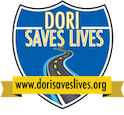DISTRACTED DRIVING
Teens' inexperience behind the wheel makes them more susceptible to distraction behind the wheel. One in three teens who text say they have done so while driving. Is your teen one of them? Research has found that dialing a phone number while driving increases your teen's risk of crashing by six times, and texting while driving increases the risk by 23 times. Talking or texting on the phone takes your teen's focus off the task of driving, and significantly reduces their ability to react to a roadway hazard, incident, or inclement weather.
Distracted driving can take on many forms beyond texting and talking on the cell phone. Many teens may try to use their driving time to eat their morning breakfast or drink coffee, to apply makeup, or to change the radio station. Many teens are distracted by the addition of passengers in the vehicle. Any distraction is a dangerous distraction. Taking eyes off the road even for five seconds could cost a life.
What Can You Do?
- Talk to your teen about the rules and responsibilities involved in driving. Share some stories and statistics related to teen drivers and distracted driving. Remind your teen often that driving is a skill that requires the driver's full attention. Texts and phone calls can wait until arriving at his or her destination.
- Familiarize yourself with your State's graduated driver licensing law, and enforce its guidelines for your teen. Check to see what your State's laws are on distracted driving; many States have novice driver provisions in their distracted driving laws. Create your own rules if necessary. Restricting the number of passengers your teen can have, or the hours your teen can drive, is a very effective way to minimize distraction for your teen driver. Talk about the consequences of distracted driving and make yourself and your teen aware of your State's penalties for talking or texting on a phone while driving.
- Set consequences for distracted driving. If your teen breaks a distraction rule you've set, consider suspending your teen’s driving privileges, further limiting the hours during which they can drive, or limiting the places where they can drive. Parents could also consider limiting a teen’s access to their cell phone—a punishment that in today’s world could be seen by teens as a serious consequence.
- Set the example by keeping your eyes on the road and your hands on the wheel while driving. Be consistent between the message you tell your teen and your own driving behaviors. Novice teen drivers most often learn from watching their parents.








